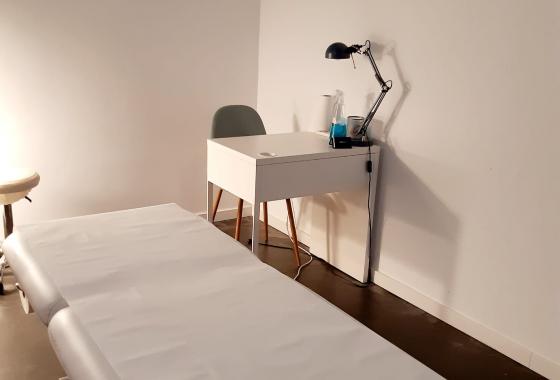At FisioClinics Palma de Mallorca, after the evaluation with our specialist in pelvic floor / floor dysfunctions, we proceed to solve Urinary Incontinence with the best and most current therapeutic techniques and tools. If you have involuntary urine leakage and want to know more about this dysfunction, continue reading the following article.
What is urinary incontinence?
Urinary Incontinence is a loss of bladder control, in addition, it is a frequent problem and that often causes a lot of embarrassment to the sufferer. The intensity ranges from occasionally losing urine when you cough or sneeze to having such a sudden and strong urge to urinate that you don't make it to the bathroom in time. There are different types of Urinary Incontinence, among which are the following:
-
Stress incontinence, there is a leakage of urine when pressure is exerted on the bladder, when coughing, sneezing or laughing, exercising or lifting weights.
-
Emergency incontinence, there is a sudden and intense urge to urinate that is followed by an involuntary leakage of urine.
-
Overflow incontinence presents frequent dribbling as the bladder does not empty completely.
-
Mixed incontinence, which has a combination of several incontinences.
What are the symptoms of Urinary Incontinence?
The characteristic symptoms of Urinary Incontinence are involuntary loss of urine or urine leakage. Among other symptoms that are presented, we have the following:
-
Abdominal pressure.
-
Urgency to go to the bathroom.
-
Leaking urine when laughing, coughing, or sneezing.
-
Pelvic pain.
-
Urinary tract infections.
-
Feeling that the bladder does not empty completely when going to the bathroom.
Left untreated or left untreated, incontinence can lead to rashes and other skin problems. If overflow urinary incontinence is not treated, it can lead to a urinary tract infection.
What Causes Involuntary Urine Loss?
Involuntary loss of urine can be caused by certain daily habits, previous illnesses or physical problems. A thorough evaluation can help determine what is causing urinary incontinence.
Factors that increase the risk of urinary incontinence include the following:
-
Sex, as women are more prone to incontinence.
-
Age, as the muscles lose their tone over the years.
-
Being overweight, this increases the pressure on the bladder and the muscles of the pelvic floor and those around it.
-
Have a family history.
-
Neurological diseases or diabetes can increase the risk of incontinence.
How is the medical diagnosis of Urinary Incontinence made?
In order to make a correct diagnosis, the external factors and disorders of the urinary tract that cause incontinence must be differentiated, and a thorough physical examination is necessary, which includes both a perineal sensitivity examination, analytical and radiological studies as well as urodynamics, this information will help determine the Possible reasons for Urinary Incontinence.
 Physiotheraphy
Physiotheraphy Osteopathy
Osteopathy Massage
Massage Lymphatic
Lymphatic Group classes
Group classes Home
Home Baby
Baby







































